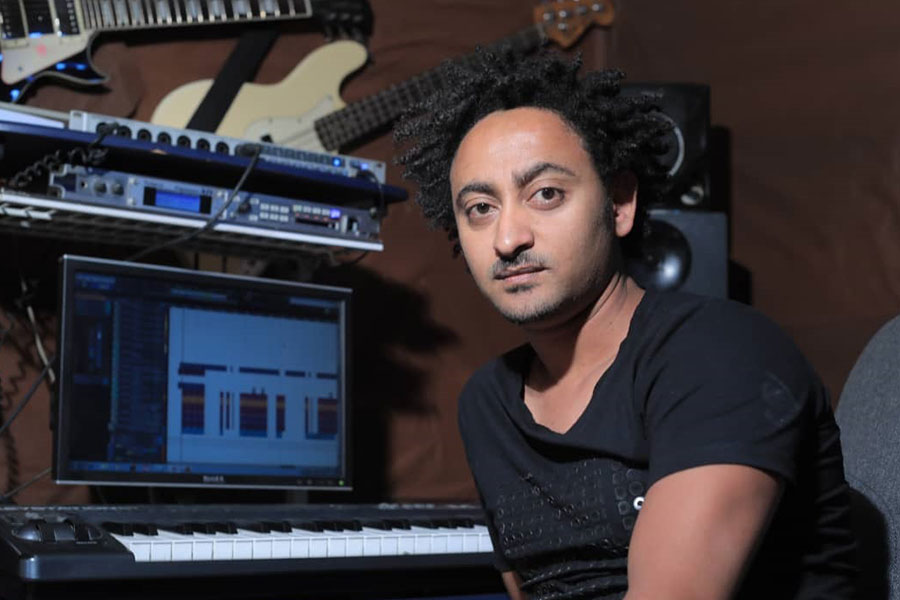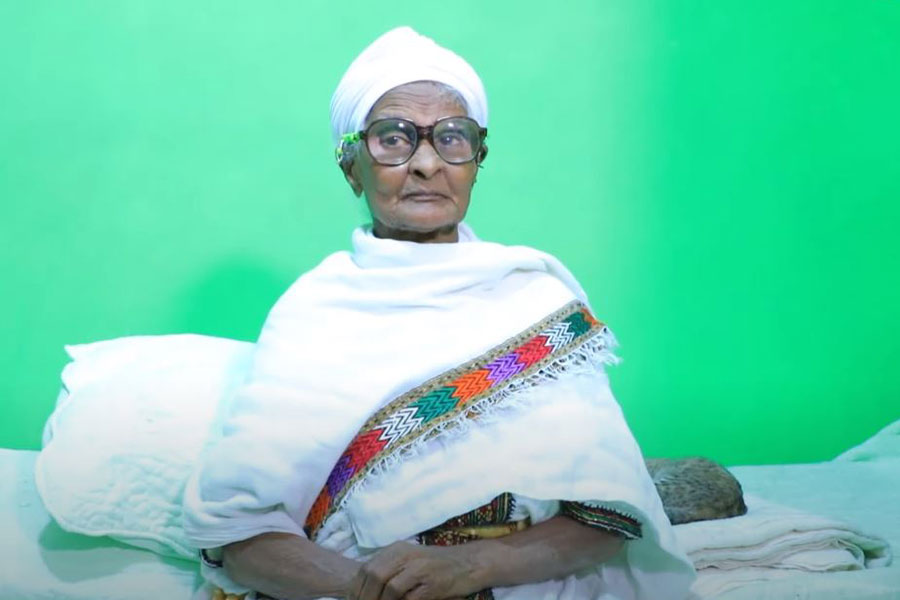
A while ago when I was on my daily walking route, I had the usual sensation to sing. The route helped the ambience, which has droves of pedestrians, groceries, cafes and bars.
Perhaps most visible are the quirt sigaeateries, known for serving raw meat, competing to allure and hold onto customers. Part of the ingredient for this, they figure, is the loud and blaring music they play - music legends from the past and present coarse through their speakers. The multitude of tone vibrations and thoughtfully woven notes could be overwhelming for some. It can even be described as noise. But not to people that have grown fond of the communal and urban sound of the streets.
I went into a suspended, animated stupor and started to sing my favourite songs from my youth, with a flash of merriment lingering for a long walk.
As I approached a dumpster, a perplexing sight greeted me. It was a contemptible variety, including a freshly skinned goatskin, barely used toothbrush, a sack full of garden waste in soil and ash from stoves. Beyond that, I noticed something that sank my heart.
In the dumpster were discarded CDs of Ethiopian music stars. These were the soundtracks to milestones of my life. There were albums that gave artists uphill battles to innovate and get produced. Masterpieces that delight and soothe to this day. There were music bands that mark specific dates and times in my life, seeming to situate me in a certain period of emotionalism.
Remember, this was music that was made before the digital age, when voices could not be cleaned up by computers and tunes could not be easily added in post-production. But my destination helped me understand that for all the nostalgia we attach to music, the art form is just another manifestation of the dominant mood of the period in which they are produced.
It was arriving at the house of a close friend whom I used to meet in a pub years back. He sat in the open in a garden with his young daughter. We gibed at the monotony of today’s music, and how even the azamary, with their quick-witted improvisation and arrangement of words, were better artists. They were ballads improvised in well-spoken comedy scenes and enough double entendres to make one question the supposed conservatism of Ethiopia’s society.
There was also the early stagings of public shows of artists. It was opaque in its presentation, barring the audience from the stage, forcing them to sit and watch, as if in a theatre. It was crudely formal, uninfluenced by the feelings and emotions of the watching public.
As my friend and I were chit-chatting about this, there was one more revelation. His daughter started playing music on her smartphone. It became clear then that the CDs in the dumpster did not represent a frustration with the music of the old but the arcane nature of the medium on which they used to be presented and distributed.
It is hard not to get into the eclectic audio repertory of the new medium, which is flexible, adaptable and its contents endlessly reproducible. The more important question was whether or not this medium also carried content that met the musical range of the creative geniuses of the old.
Or is all that today’s music has to show for it some shiny and sophisticated gadgets?
It was not. There was hope. If all is lost, at least this generation had the late Elias Melka, a rarely matched music composer. He was the soundtrack of a generation, as those that influenced him were that of mine. His reach was broad and deeply felt. His name is brought up with fondness and excitement. The old folk such as I may not see it right away, but this generation has clearly not lost its sense of music.
They are all the more helped by the creative ways in which modern music, as well as the old, is distributed. There are interesting apps such as Awtar that offer a large array of Ethiopian music works, easily searchable to find one's favourite artist and buy their music.
No doubt it gives creative people the energy and idea to generate interesting music, perhaps even self-produce, including the old jester friend of mine.
Who needs CDs anymore?
PUBLISHED ON
Dec 04,2020 [ VOL
21 , NO
1075]


Commentaries | Sep 19,2020

Viewpoints | Apr 06,2024

Featured |

Radar | Dec 24,2022

Featured | Apr 19,2025

Radar | Jun 03,2023

View From Arada | Nov 07,2020

Agenda | Jun 05,2021

Fortune News | Sep 14,2024

Commentaries | Feb 12,2022

Dec 22 , 2024 . By TIZITA SHEWAFERAW
Charged with transforming colossal state-owned enterprises into modern and competitiv...

Aug 18 , 2024 . By AKSAH ITALO
Although predictable Yonas Zerihun's job in the ride-hailing service is not immune to...

Jul 28 , 2024 . By TIZITA SHEWAFERAW
Unhabitual, perhaps too many, Samuel Gebreyohannes, 38, used to occasionally enjoy a couple of beers at breakfast. However, he recently swit...

Jul 13 , 2024 . By AKSAH ITALO
Investors who rely on tractors, trucks, and field vehicles for commuting, transporting commodities, and f...

Jul 12 , 2025
Political leaders and their policy advisors often promise great leaps forward, yet th...

Jul 5 , 2025
Six years ago, Ethiopia was the darling of international liberal commentators. A year...

Jun 28 , 2025
Meseret Damtie, the assertive auditor general, has never been shy about naming names...

Jun 21 , 2025
A well-worn adage says, “Budget is not destiny, but it is direction.” Examining t...